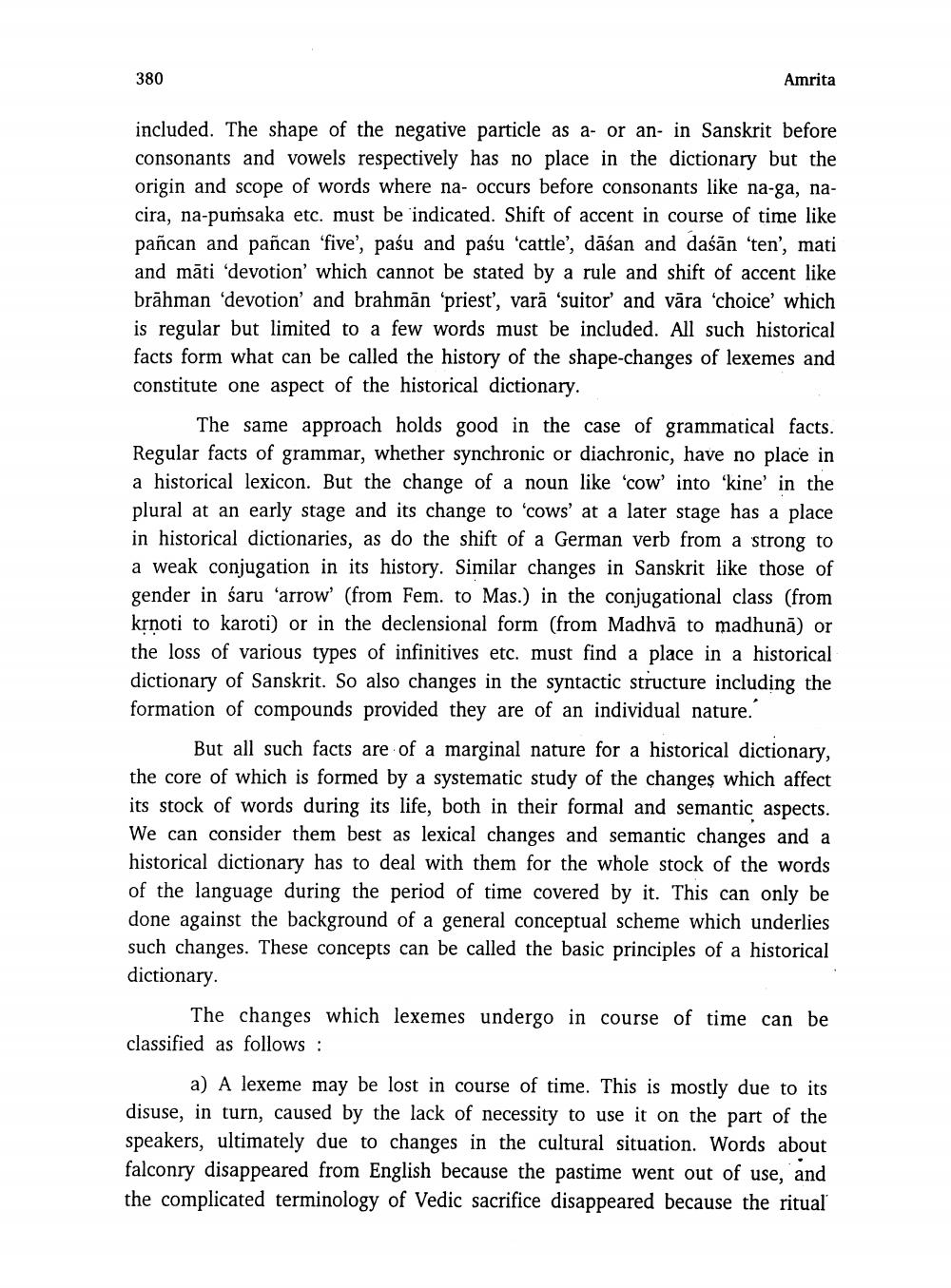________________
380
Amrita
onary.
included. The shape of the negative particle as a- or an- in Sanskrit before consonants and vowels respectively has no place in the dictionary but the origin and scope of words where na- occurs before consonants like na-ga, nacira, na-pumsaka etc. must be indicated. Shift of accent in course of time like pañcan and pañcan ‘five', paśu and paśu 'cattle', dāśan and daśān 'ten', mati and māti 'devotion' which cannot be stated by a rule and shift of accent like brāhman devotion and brahmān 'priest, varā 'suitor and vāra 'choice which is regular but limited to a few words must be included. All such historical facts form what can be called the history of the shape-changes of lexemes and constitute one aspect of the historical dictionary.
The same approach holds good in the case of grammatical facts. Regular facts of grammar, whether synchronic or diachronic, have no place in a historical lexicon. But the change of a noun like 'cow into 'kine' in the plural at an early stage and its change to 'cows' at a later stage has a place in historical dictionaries, as do the shift of a German verb from a strong to a weak conjugation in its history. Similar changes in Sanskrit like those of gender in saru 'arrow' (from Fem. to Mas.) in the conjugational class (from krnoti to karoti) or in the declensional form (from Madhvā to madhunā) or the loss of various types of infinitives etc. must find a place in a historical dictionary of Sanskrit. So also changes in the syntactic structure including the formation of compounds provided they are of an individual nature.
But all such facts are of a marginal nature for a historical dictionary, the core of which is formed by a systematic study of the changes which affect its stock of words during its life, both in their formal and semantic aspects. We can consider them best as lexical changes and semantic changes and a historical dictionary has to deal with them for the whole stock of the words of the language during the period of time covered by it. This can only be done against the background of a general conceptual scheme which underlies such changes. These concepts can be called the basic principles of a historical dictionary.
The changes which lexemes undergo in course of time can be classified as follows:
a) A lexeme may be lost in course of time. This is mostly due to its disuse, in turn, caused by the lack of necessity to use it on the part of the speakers, ultimately due to changes in the cultural situation. Words about falconry disappeared from English because the pastime went out of use, and the complicated terminology of Vedic sacrifice disappeared because the ritual




